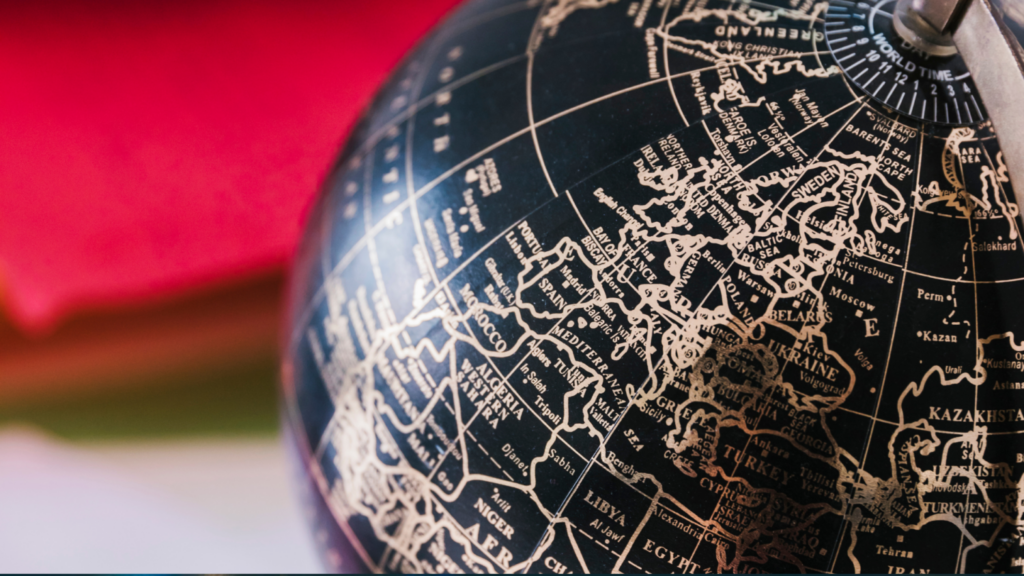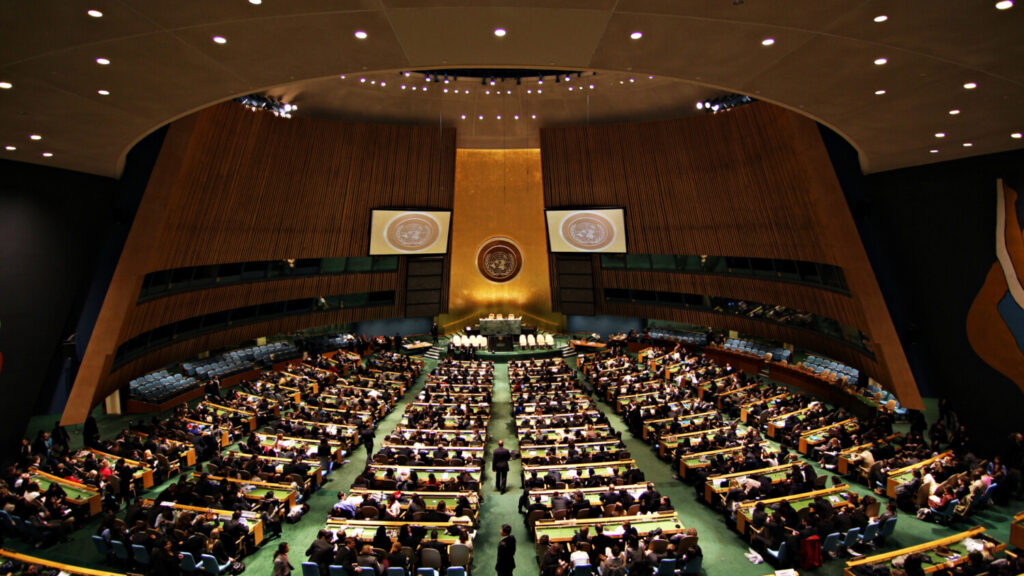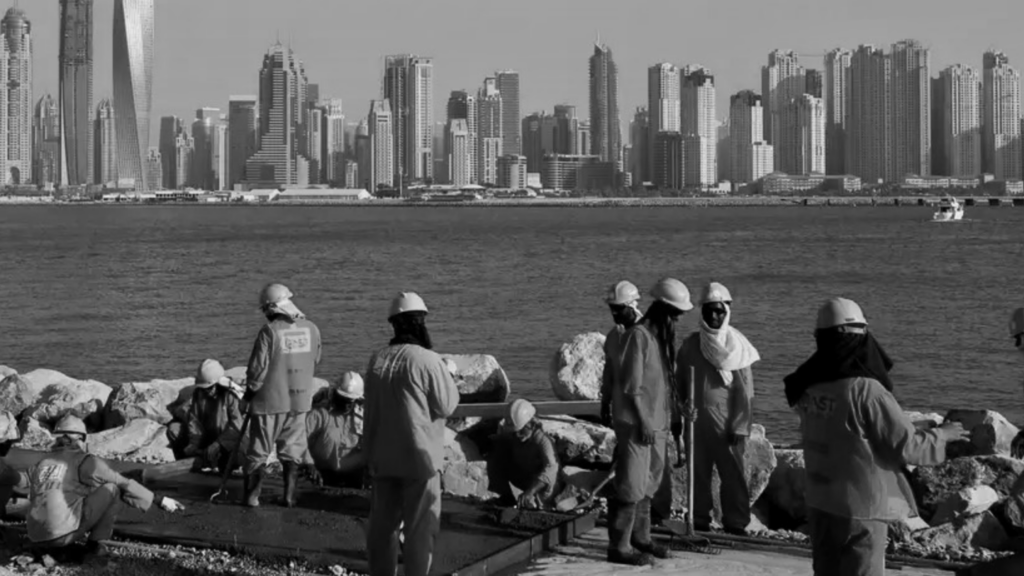The End of the Ivorian Miracle?
Once scarred by civil war, Côte d’Ivoire has transformed into one of Africa’s most dynamic economies, boosted by economic reforms, foreign investment, and a thriving oil sector. Yet the country faces significant challenges, including climate change, underdeveloped infrastructure, and political uncertainty, all of which could shape its path to middle-income status by 2030.
Côte d’Ivoire is without question one of Africa’s fastest-growing and most promising success stories. Excluding the 2020 Covid-19 slowdown, the country’s GDP growth has exceeded 6% per annum since 2012 (IMF, 2025). Ambitious foreign investments, economic reforms, and improved public service provision have driven this progress. But the country’s short-term outlook is clouded by its overdependence on cocoa exports and disputes over this October’s upcoming presidential election.
A Troubled History
The demise of Côte d’Ivoire’s longtime President Félix Houphouët-Boigny in 1993 marked the onset of two ruinous decades. Unable to replicate Houphouët-Boigny’s personalized control over the country’s politics, his successors instead held power by accusing politicians from the country’s north, such as Alassane Ouattara, of not being true Ivorians (DW, 2025). Anti-northern rhetoric and xenophobic violence increased as then-President Laurent Gbagbo excluded the predominantly northern opposition from the disputed 2000 presidential election (HRW, 2001). Gbagbo’s government continued to aggravate xenophobic tensions, resulting in a mutiny by northern troops and civil war in 2002 (Hinshaw, 2011).
The First Ivorian Civil War (2002–07) left the country divided, with Gbagbo controlling the south and the Forces Nouvelles de Côte d’Ivoire (FNCI) rebels holding the north. After Gbagbo disputed Ouattara’s victory in the long-awaited December 2010 presidential elections, street violence and the Second Ivorian Civil War (2011) ensued. The pro-Ouattara FNCI (renamed the Republican Forces of Côte d’Ivoire) won the conflict, launching a southern offensive and seizing Abidjan and the capital Yamoussoukro by April (IISS, 2011, p. 292). Having broken Côte d’Ivoire’s political impasse, Ouattara faced the daunting task of reviving the bullet-ridden Ivorian economy.
The First Ivorian Civil War (2002–07) left the country divided, with Gbagbo controlling the south and the Forces Nouvelles de Côte d’Ivoire (FNCI) rebels holding the north. After Gbagbo disputed Ouattara’s victory in the long-awaited December 2010 presidential elections, street violence and the Second Ivorian Civil War (2011) ensued. The pro-Ouattara FNCI (renamed the Republican Forces of Côte d’Ivoire) won the conflict, launching a southern offensive and seizing Abidjan and the capital Yamoussoukro by April (IISS, 2011, p. 292). Having broken Côte d’Ivoire’s political impasse, Ouattara faced the daunting task of reviving the bullet-ridden Ivorian economy.
The New Cote d’Ivoire
The country has made enormous strides since the Second Civil War. Between 2012 and 2024, its GDP grew from $36.3 to $86.5 billion current USD, with other measures such as internet access and poverty also improving significantly (World Bank, 2025). This progress corresponds with an increase in exports from $13.2 to $21.6 billion from 2018–23, and imports rising from $11.9 to $20 billion during the same period. The country mainly exports primary commodities like cocoa beans to developed markets. It imports hydrocarbons and manufactured goods from emerging markets like China and Nigeria (OEC, 2023).
Ouattara’s successful economic reforms have attracted significant inflows of foreign direct investment by investing in infrastructure, optimizing domestic revenue collection, and controlling spending deficits (IMF, 2025). Investments in Côte d’Ivoire’s offshore upstream oil sector by Eni and other majors have established the country as one of West Africa’s premier hydrocarbon producers (Nikše, 2025). Other sectors driving economic growth are the buoyant mining industry (courtesy of the government’s investor-friendly mining code), manufacturing, and the financial services and institutions located in Abidjan (CIEIT). The government’s debt management and commitment to its reform initiatives have won it international plaudits and access to further credit (IMF, 2025).
Domestic Challenges
Côte d’Ivoire must keep its momentum to meet the government’s aspiration of becoming a middle-income country by 2030. With regard to the labour market, many of the 65% of Ivorians working in the informal sector must be integrated into the formal economy. Doing so would raise tax revenues and increase the incomes and job security of the workforce (ISS Africa, 2025). Much transport infrastructure beyond Abidjan is underdeveloped or requires upkeep. Rural and cross-border infrastructure programmes supported by the Asian Infrastructure Investment Bank and other multilateral bodies will facilitate rural economic development and West African regional trade (ADBG, 2025; AIIB, 2025).
More controversial is Ouattara’s participation in the October 2025 presidential election. The 83-year-old president has raised eyebrows by running for a fourth term and barring credible opponents from competing. Due to his economic successes, Ouattara is the expected winner, but in the context of global youth protests in Nepal, Indonesia, and elsewhere, violent post-election unrest is possible. Although the chances of a Sahel-style coup d’état are low, anti-government misinformation campaigns by Russia and the military juntas in Burkina Faso and Mali have resonated strongly with many young Ivorians and could drive unrest (ICG, 2025; Lawal, 2025).
Regional Risks
Transnational risks could also undermine Côte d’Ivoire’s reputation as a beacon of stability. Climate change has exacerbated the country’s low trade complexity by creating the erratic weather patterns contributing to this year’s reduced cocoa harvest (Ecofin Agency, 2025). Desertification triggered by rising temperatures and poor land use has impacted northern Côte d’Ivoire and displaced millions of subsistence farmers in Mali and other Sahelian countries (Alliance Sahel, 2024). Continued international support for Côte d’Ivoire’s environmental renewal programmes is key to avoiding the widespread displacement and communal conflict over resources witnessed in Nigeria and the Sahelian states (Ouattara, 2022).
Risks of terrorist spillover into Côte d’Ivoire’s north, for years free of violence until an attack on 24 August, are also rising (France 24, 2025). Jihadist insurgencies in Burkina Faso and Mali may exploit the uncertainty and unrest surrounding Ouattara’s reelection to launch raids into thinly defended rural areas along Côte d’Ivoire’s northern border (OECD, 2024). The country’s status as a recipient of economic migrants and refugees from the jihad-afflicted Sahel states has strained public services in the north and risks driving religious radicalization and disputes over farmland in the febrile pre-election context (IOM, 2024; Harmon, 2025).
Outlook
Côte d’Ivoire’s perception as West Africa’s economic success story is clouded by uncertainty over this month’s presidential election. But looking forward, its prospects remain positive. Ouattara’s government has emerged from the unrest following past elections unscathed (Baalen and Gbala, 2023) and has maintained Côte d’Ivoire’s status as one of the fastest-growing economies in the world. Effective macroeconomic policy, a booming oil sector, and continued access to foreign investment and capital markets should see Côte d’Ivoire maintain its trajectory until 2030 and beyond.
Bibliography
- African Development Bank Group (2025). Côte d’Ivoire: African Development Bank approves 115.66 million euros to develop agricultural and cross-border access infrastructure. [online] Available at: https://www.afdb.org/en/news-and-events/press-releases/cote-divoire-african-development-bank-approves-11566-million-euros-develop-agricultural-and-cross-border-access-infrastructure-85447
- Alliance Sahel (2024). The Sahel and the Challenges of Climate Change. [online] Available at: https://www.alliance-sahel.org/en/news/sahel-climate-change-challenges/
- Asian Infrastructure Investment Bank (2025). Côte d’Ivoire: Inclusive Connectivity and Rural Infrastructure Project – Projects – AIIB. [online] Available at: https://www.aiib.org/en/projects/details/2023/approved/Cote-d-Ivoire-Inclusive-Connectivity-and-Rural-Infrastructure-Project.html
- Baalen, S. Gbala, A. (2023). Patterns of electoral violence during Côte d’Ivoire’s third-Term crisis. African Affairs 122 (488), pp. 447-460. [online] Available online at: https://academic.oup.com/afraf/article/122/488/447/7223351
- Chartered Institute of Export and International Trade. Atlas of World Trade: Cote d’Ivoire. [online] Available at: https://www.export.org.uk/media/pe4fwtaq/ioeit_atlas_of_world_trade_cote_divoire.pdf
- DW. (2025). En Côte d’Ivoire, le vieux démon de l’Ivoirité refait surface – DW – 28/02/2025. [online] Available at: https://www.dw.com/fr/c%C3%B4te-divoire-c%C3%A9lestin-doh-serey-tidjane-thiam-laurent-gabgbo-alassane-ouattara/audio-71789203
- Ecofin Agency (2025). Côte d’Ivoire to Set Record Farm-Gate Cocoa Price in 2025/26. [online] Available at: https://www.ecofinagency.com/news-agriculture/3009-49112-cote-d-ivoire-to-set-record-farm-gate-cocoa-price-in-2025/26
- France 24. (2025). Armed men kill four in attack in Ivory Coast near Burkina Faso border. [online]. Available at: https://www.france24.com/en/africa/20250826-armed-men-kill-four-in-attack-in-ivory-coast-near-burkina-faso-border
- Harmon, W. Q. (2025). West Africa: EU Envoy Warns of Sahel Crises Consequences in Liberia. The Daily Observer [online]. Available at: https://allafrica.com/stories/202509100277.html
- Hinshaw, D. (2011). The double tragedy of Cote d’Ivoire. Al Jazeera. [online] Available at: https://www.aljazeera.com/features/2011/4/11/the-double-tragedy-of-cote-divoire
- Human Rights Watch. (2001). The New Racism. [online] Available at: https://www.hrw.org/report/2001/08/28/new-racism/political-manipulation-ethnicity-cote-divoire
- IOM. (2024). Northern Côte d’Ivoire Crisis Response Plan 2024 | Global Crisis Response Platform. [online] Available at: https://crisisresponse.iom.int/response/northern-cote-divoire-crisis-response-plan-2024
- ISS Africa (2025). Côte d’Ivoire – ISS African Futures. [online] Available at: https://futures.issafrica.org/geographic/countries/cote-divoire/
- IISS (2011). Strategic Survey 2011: The Annual Review of World Affairs. Routledge.
- IMF (2021). World Economic Outlook (April 2025). [online] Available at: https://www.imf.org/external/datamapper/NGP_RPCH@WEO/CIV?zoom=CIV&highlight=CIV
- IMF. (2025). Côte d’Ivoire: Fostering Economic Transformation and Adapting to Climate Change. [online] Available at: https://www.imf.org/en/News/Articles/2025/01/14/cf-cote-d-ivoire-fostering-economic-transformation-and-adapting-to-climate-change
- IMF. (2025). IMF Executive Board Completes the Fourth Reviews of the EFF/ECF Arrangements and the Third Review of the RSF Arrangement for Côte d’Ivoire. [online] Available at: https://www.imf.org/en/News/Articles/2025/06/25/pr25220-cote-d-ivoire-fourth-reviews-of-the-eff-ecf-and-third-review-of-the-rsf
- International Crisis Group (2025). An Electoral Puzzle: Handling Côte d’Ivoire’s High-risk Poll. [online] Available at: https://www.crisisgroup.org/africa/cote-divoire/318-electoral-puzzle-handling-cote-divoires-high-risk-poll
- Lawal, S. (2025). Why did rumours of a coup sweep Ivory Coast this week? Al Jazeera. [online] Available at: https://www.aljazeera.com/news/2025/5/24/why-did-rumours-of-a-coup-sweep-ivory-coast-this-week
- Nikše, D. (2025). Eni’s Côte d’Ivoire portfolio grows to 11 blocks. Offshore Energy. [online] Available at: https://www.offshore-energy.biz/enis-cote-divoire-portfolio-grows-to-11-blocks/
- The Observatory of Economic Complexity. (2023). Cote d’Ivoire (CIV) Exports, Imports, and Trade Partners. [online] Available at: https://oec.world/en/profile/country/civ?selector359id=HS4&selector358id=tradeValue&selector343id=Import
- Ouattara, A. D. (2022). COP15 desertification: action on biodiversity and deforestation. World Economic Forum. [online] Available at: https://www.weforum.org/stories/2022/06/cop15-new-frameworks-reverse-biodiversity-loss-deforestation/
- World Bank Group (2025). Cote d’Ivoire | Data. [online] Available at: https://data.worldbank.org/country/cote-divoire



